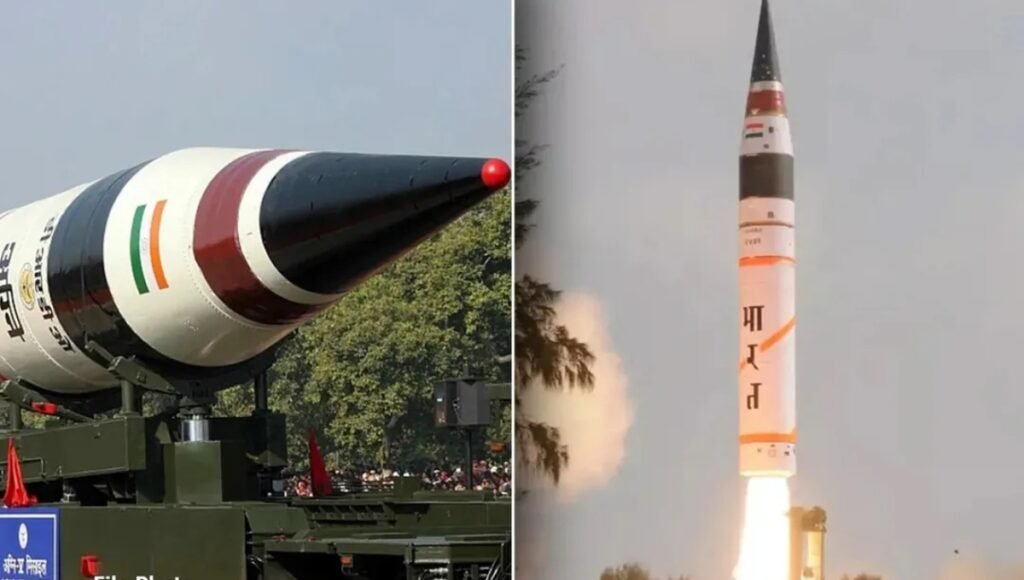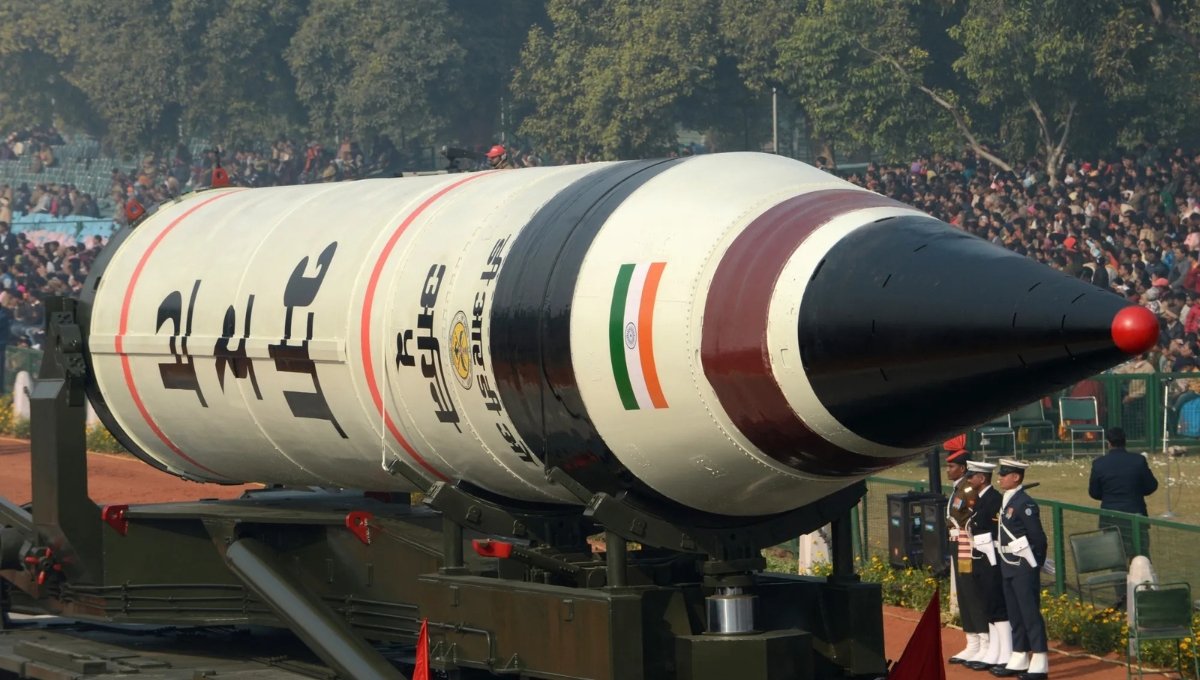Indian and Pakistan have long had a tense and distrusting relationship. But as India’s military might grows, it is only natural for Pakistan to become increasingly alarmed. India’s recent successful test of the medium-range ballistic missile Agni-5 not only increased India’s strategic dominance but also made Pakistan reevaluate its strategy. This missile’s unique feature is its ability to carry both conventional and nuclear warheads, which boosts its power even more.
India’s Agni-5 test and its importance

India’s Agni 5 missile tested at the Integrated Test Range in Chandipur, Odisha, on August 20. Being entirely dependent on domestic technology, this test was a proud moment for the Indian Defense Research and Development Organization (DRDO). With a range of almost 5,000 kilometers, this missile can reach not just all of Asia but even some regions of Europe. It is even more destructive and versatile when launched from a road-mobile launcher.
Pakistan’s restlessness and think tank’s warning
Pakistan is feeling the effects of India’s progress. Prime Minister Shahbaz Sharif and Army Chief Asim Munir have received a direct warning from the Strategic Vision Institute (SVI), located in Islamabad, that such Indian tests should not be taken lightly. SVI has said unequivocally that the stability of the region may be seriously threatened by Agni-5 and, maybe, Agni-6 missiles. According to Pakistan, India’s advancements go beyond its defense capabilities and also demonstrate its desire to become a major player on the world stage.
India’s missile power and growing naval power
In addition to developing ballistic missile technology, India is consistently enhancing its naval capabilities. India’s strength is greatly increased by its nuclear-powered submarines and missiles launched from submarines. According to SVI, these preparations make it abundantly evident that India wishes to send a clear warning to its adversaries and is not prepared to strategically deteriorate under any circumstances. Pakistan is viewing these actions as a security threat because of this.
The journey of Agni missiles and India’s strategic strength
In the past 20 years, India’s Agni series has advanced significantly. Agni-1 had a range of only 700 km, whereas Agni-2, Agni-3, and Agni-4 had ranges of 2,000 km, 3,500 km, and 4,000 km, respectively. Agni-5 has now elevated this series to a new level. Even if fired from the southern region of India, this missile may reach every portion of Pakistan. Pakistan is most concerned about this reality because it believes that India’s increasing influence could upset its long-standing strategic equilibrium.
India’s growing confidence and Pakistan’s insecurity

India’s accomplishment serves as a testament to its confidence. The ongoing creation of weaponry based on contemporary technology demonstrates India’s desire to have a significant impact both locally and internationally. In contrast, Pakistan’s level of insecurity keeps rising. This comment from the think tank is actually evidence of Pakistan’s unease about India’s advancements.
In addition to being a technological accomplishment, India’s Agni-5 test sends a strong statement that it is unwilling to compromise in any way with regard to its security and standing in the world.
Disclaimer: This article is written for informational purposes only. The information mentioned in it is based on news sources and available facts. We do not support any kind of political opinion or bias.
Also Read:
Rajasthan’s Manika Vishwakarma Crowned Miss Universe India 2025
Indian Tricolor Flies at Seattle’s Space Needle for the First Time on 79th Independence Day














